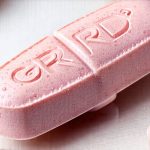Heartburn, acid reflux, indigestion – these are all too familiar experiences for many people. Often stemming from lifestyle factors like diet, stress, or even just the mechanics of eating, excess stomach acid can cause significant discomfort. While antacids and proton pump inhibitors are common solutions, there’s a growing curiosity about everyday remedies, and chewing gum frequently surfaces in discussions. The idea that something as simple as chewing gum could help neutralize stomach acid feels almost too good to be true, but it’s rooted in some interesting physiological principles. This article will delve into the science behind this claim, exploring how chewing gum interacts with our digestive system and whether certain types offer more benefit than others when dealing with acidic discomfort. It’s important to note that this isn’t about replacing medical treatment, but rather understanding potential supplementary approaches for managing mild symptoms.
The digestive process relies on a delicate balance of acid production. Hydrochloric acid in the stomach plays a crucial role in breaking down food and absorbing nutrients. However, when acid levels become excessive or reflux into the esophagus, it leads to those unpleasant symptoms we associate with heartburn and indigestion. Many people seek quick relief without resorting to medication immediately, leading them to explore alternatives like chewing gum. The rationale behind this lies primarily in increased saliva production, which is naturally alkaline and can help buffer stomach acid. However, the type of gum chewed – its ingredients, sugar content, and even whether it’s flavored or not – can all influence its effectiveness. This exploration will aim to separate fact from fiction regarding chewing gum’s role in neutralizing stomach acid and provide a nuanced understanding of its potential benefits. If underlying issues are present, consider if gut repair help reverse food sensitivities might also be beneficial.
The Science Behind Saliva & Acid Neutralization
Chewing stimulates saliva production, and this is where the core mechanism lies. Saliva isn’t just for moistening food; it contains bicarbonate ions, which act as a natural buffer against acidity. – Bicarbonate directly neutralizes hydrochloric acid in the stomach. – This buffering effect can temporarily raise the pH level within the esophagus, reducing the burning sensation associated with heartburn. The more saliva you produce, generally, the greater the potential for neutralization. However, it’s crucial to understand that this is a temporary solution. Chewing gum doesn’t address the underlying cause of acid reflux or excessive acid production; it merely provides temporary symptomatic relief. Think of it as a band-aid rather than a cure. Many find improvements through changes in diet – perhaps exploring if low acid diets help with food intolerance.
The effectiveness isn’t solely about volume either. The composition of saliva itself varies depending on factors like hydration levels and what you’ve recently eaten. Furthermore, the duration of chewing is important. A brief chew might not produce enough saliva to significantly impact acidity, while prolonged chewing can lead to increased bicarbonate concentration in the mouth and stomach. It’s also worth mentioning that some studies suggest different gum bases and ingredients may influence saliva production rates. Sugar-free gums are generally preferred for oral health reasons (discussed later), but they don’t necessarily equate to greater acid neutralization power.
Finally, it’s important to remember the gastroesophageal reflex. The lower esophageal sphincter (LES) is a muscular valve that prevents stomach acid from flowing back into the esophagus. Chewing gum can sometimes relax the LES in some individuals, potentially exacerbating reflux symptoms. This is why, while beneficial for some, chewing gum isn’t universally helpful and might even worsen things for others with certain conditions like hiatal hernia or severe GERD. In these cases, it’s important to address gut health help with autoimmune recovery as well.
Gum Composition & Its Impact
The ingredients within a chewing gum play a significant role in its potential to help – or hinder – acid neutralization. – Sugar alcohols like xylitol, sorbitol, and mannitol are commonly used as sweeteners in sugar-free gums. They don’t contribute to tooth decay and can actually inhibit bacterial growth that leads to cavities. However, excessive consumption of some sugar alcohols can cause digestive upset in sensitive individuals, potentially counteracting any benefits from acid neutralization. – Gum base is the non-nutritive masticatory substance forming the chewing gum matrix. Different bases have varying textures and affect how long the flavor lasts, but their direct impact on saliva production isn’t well established. – Flavorings are largely cosmetic but can influence chewing behavior. Mint flavors, for instance, might relax the LES in some people, while other flavors may be better tolerated.
Beyond sweeteners and base, some gums contain additives like calcium carbonate, which is an actual antacid ingredient. These gums are specifically marketed as acid reflux relief products and may offer a more potent neutralizing effect compared to standard chewing gum. However, they should still be used cautiously and aren’t intended to replace prescribed medication. The presence of artificial colors or preservatives might also be a consideration for individuals with sensitivities or allergies. It’s crucial to read the ingredient list carefully and choose gums that align with your personal preferences and dietary needs. For those struggling with ongoing issues, can certain herbs help with food sensitivities might offer some relief.
Sugar-Free vs. Sugared Gum: A Critical Distinction
The difference between sugar-free and sugared gum is far more than just caloric intake; it’s about long-term oral health and its potential influence on digestive issues. – Sugared gums contribute to tooth decay as bacteria feed on the sugars, producing acids that erode enamel. This can exacerbate mouth acidity and potentially worsen heartburn symptoms in the long run. – Sugar-free gums, particularly those sweetened with xylitol, actively promote dental health by reducing bacterial growth. Xylitol also stimulates saliva production, enhancing the buffering effect.
Moreover, sugar can trigger inflammation in the gut for some individuals, contributing to digestive discomfort and acid reflux. Choosing sugar-free gum minimizes this risk. While it’s tempting to think a quick sugar boost might provide temporary relief, the long-term consequences outweigh any short-lived benefits. Focusing on sugar-free options is essential not only for dental hygiene but also for minimizing potential gastrointestinal irritation. Staying properly hydrated can further aid digestion; can hydration help ease bloating often goes hand in hand with acid reflux management. It’s important to note that even with sugar-free gum, moderation is key – excessive chewing can lead to jaw muscle fatigue and other issues.
The Role of Chewing Duration & Frequency
The duration and frequency of chewing significantly impact the effectiveness of gum in neutralizing stomach acid. – Short bursts of chewing (less than 5 minutes) may not generate enough saliva to produce a noticeable buffering effect. – Prolonged chewing (10-20 minutes) can lead to increased saliva production, potentially providing more substantial relief from heartburn symptoms. However, this must be balanced against the risk of jaw muscle fatigue and potential LES relaxation.
Regular chewing throughout the day, rather than just after meals, might also be beneficial for maintaining a consistent level of bicarbonate in the mouth and stomach. This doesn’t mean constantly chewing gum; it means incorporating it strategically when you anticipate or experience acid reflux symptoms. It’s important to experiment and find what works best for you. Some people may find relief with shorter, more frequent chewing sessions, while others prefer longer, less frequent intervals. Pay attention to your body’s response and adjust accordingly. Remember that chewing gum is a supplementary tool and should not be relied upon as a primary treatment for acid reflux or heartburn. Can blended diets help gut repair can also play a role in overall digestive health.
It’s vital to reiterate that this information is for general knowledge and informational purposes only, and does not constitute medical advice. Always consult with a qualified healthcare professional for any health concerns or before making any decisions related to your health or treatment. Can fasting help reset digestive function is another area some explore, but should be done under medical supervision.


















